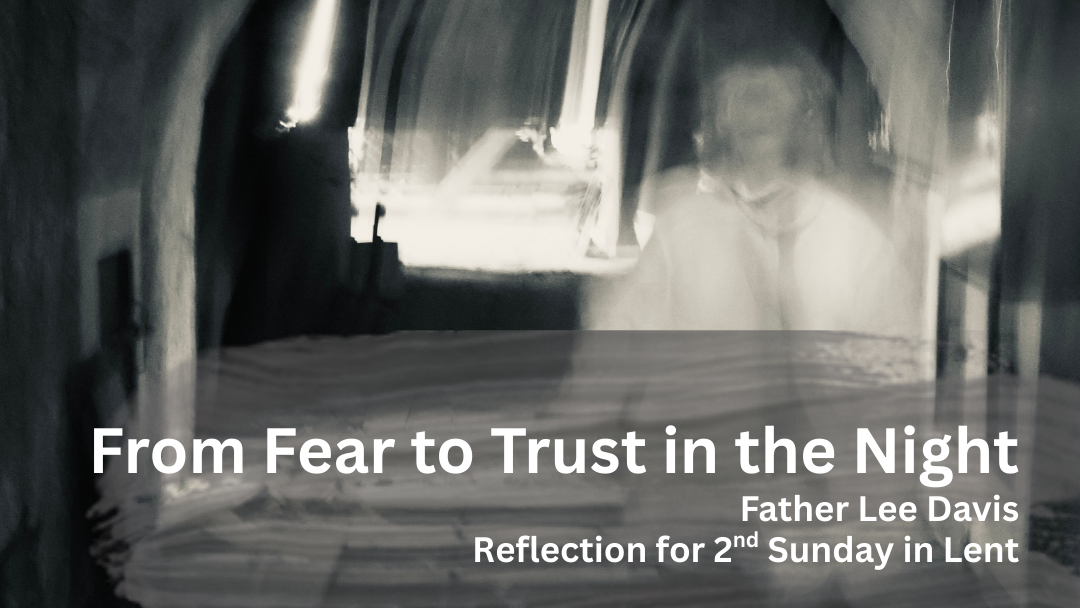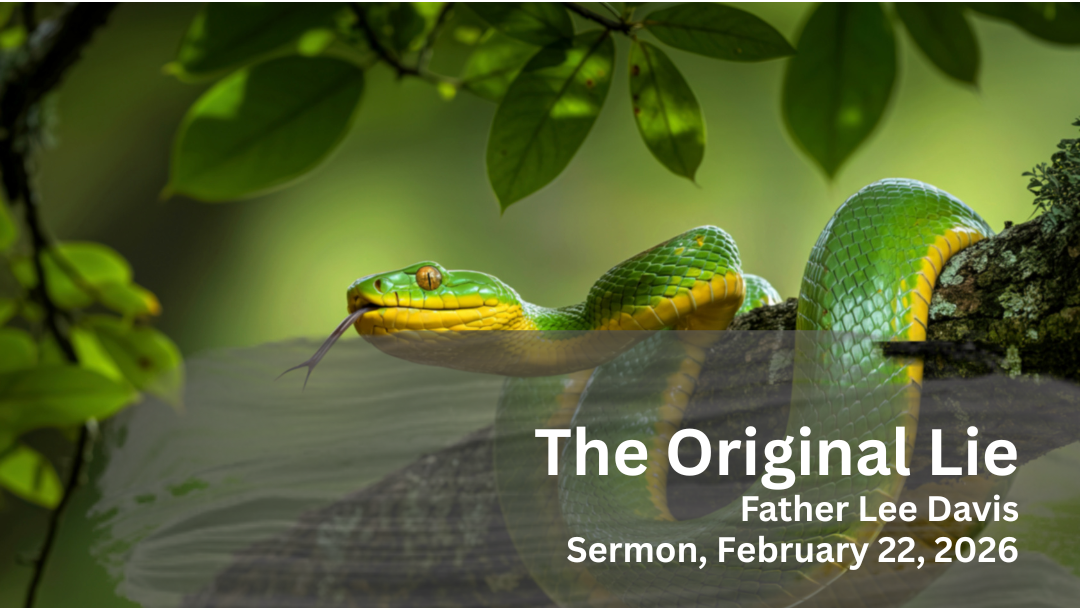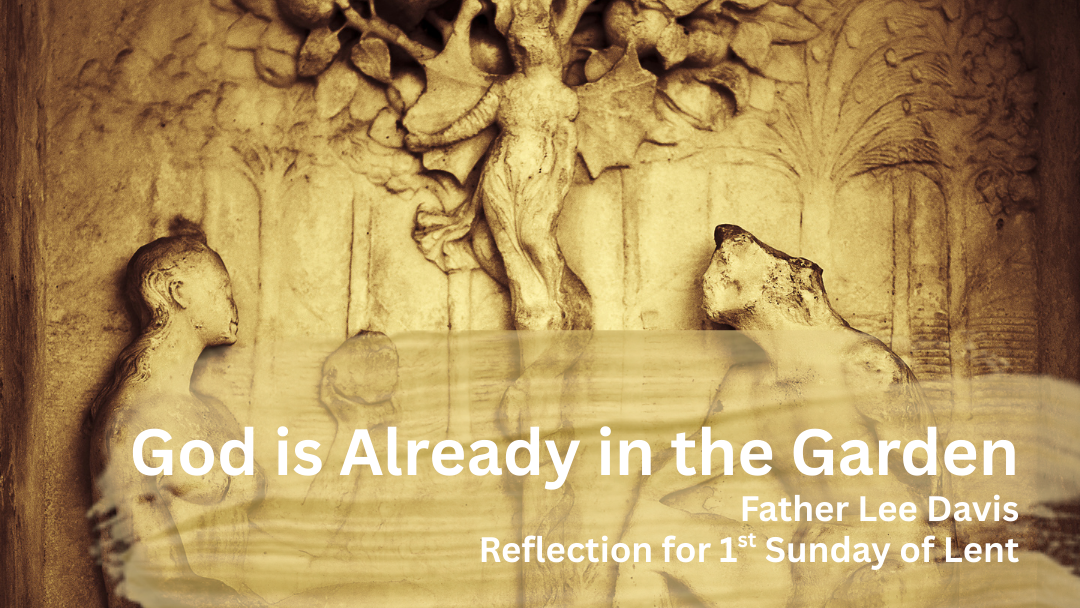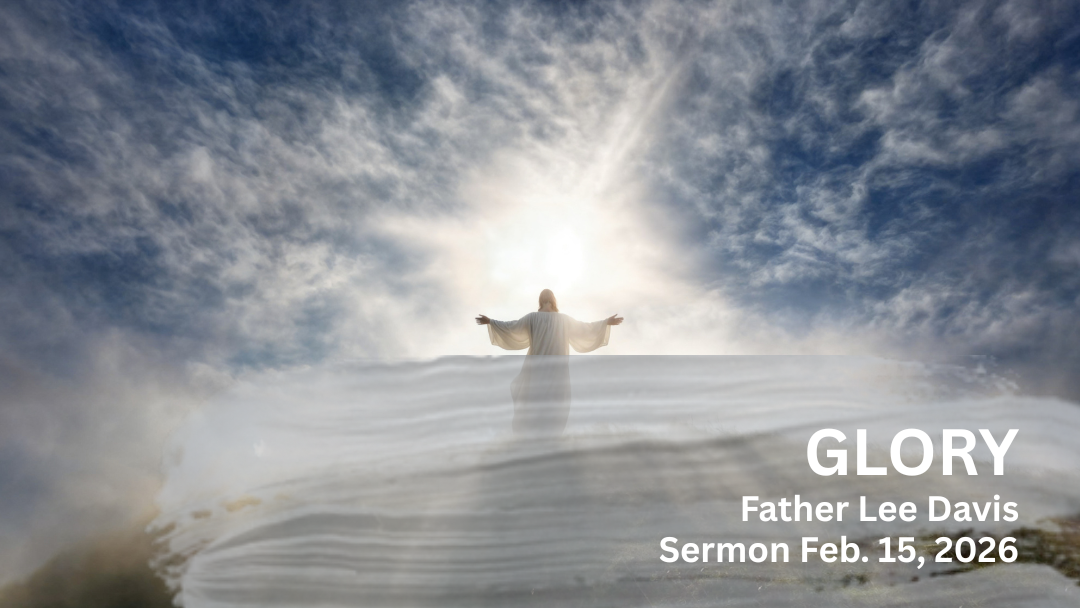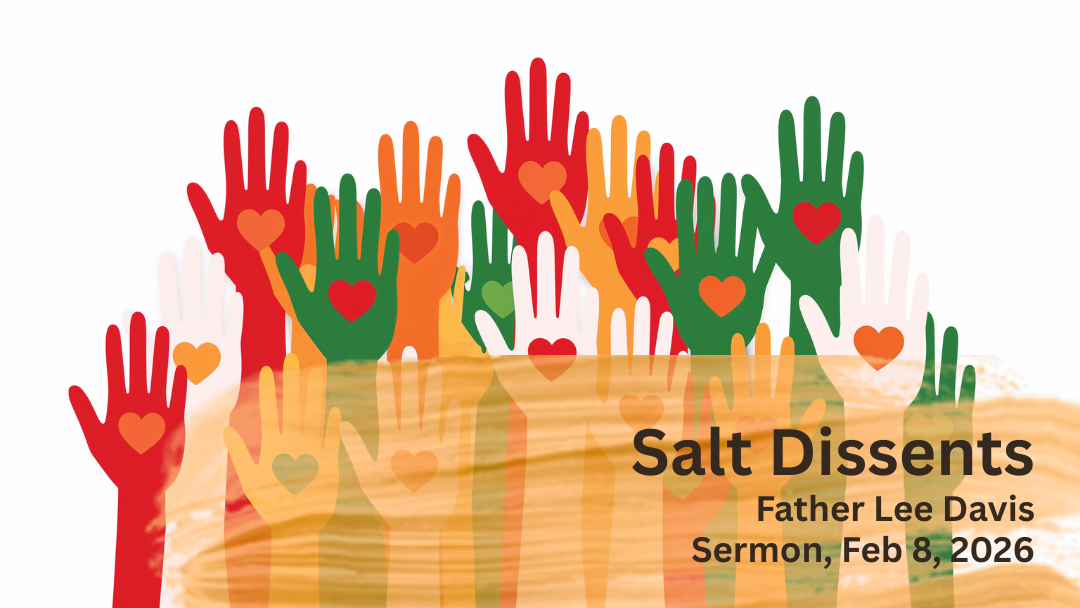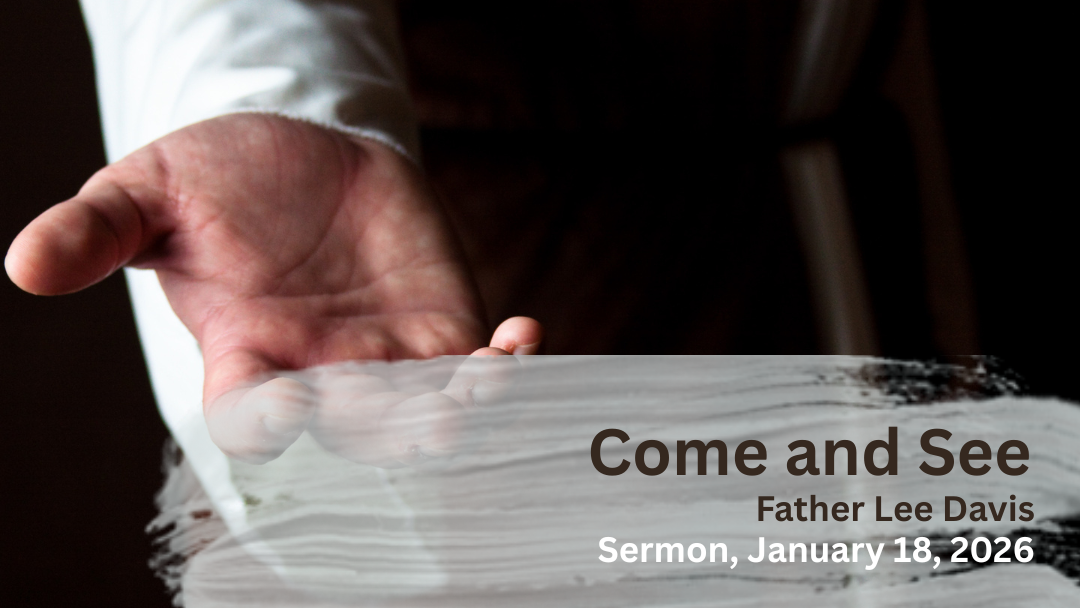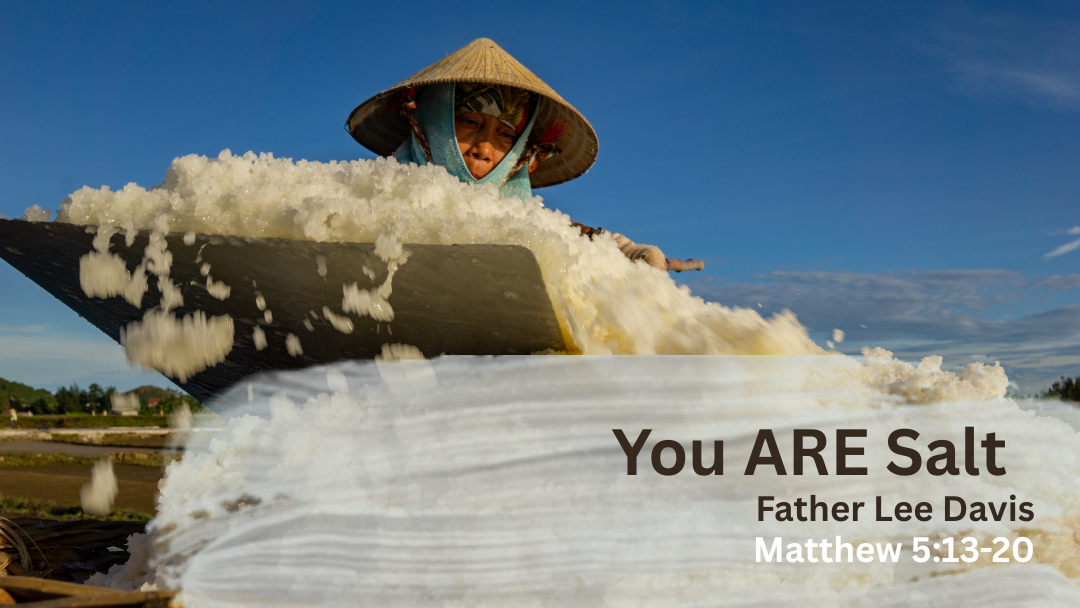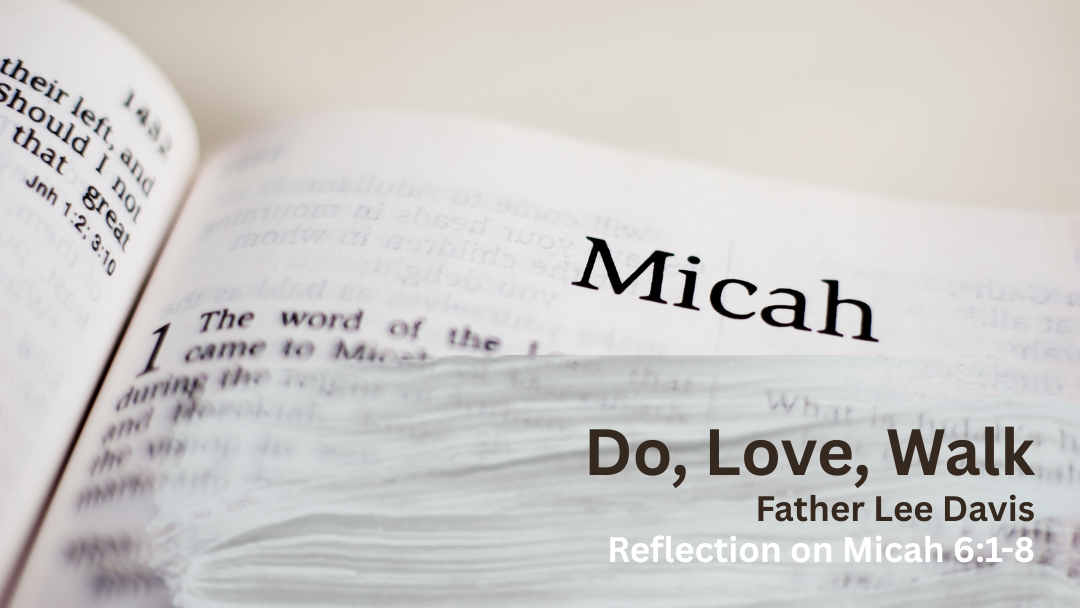A Faithful Vision of Just and Inclusive Patriotism
A Faithful Vision of Just and Inclusive Patriotism
Desplácese hasta la parte inferior de la página para ver la versión en español.
Patriotism isn’t about who can wave the biggest flag or shout the loudest. It isn’t found in slogans or bumper stickers. True patriotism is love — not the sentimental kind that avoids hard truths, but the kind that speaks the truth because it loves. The kind of love that’s willing to wrestle with history, to take responsibility, to say, “We can be better — because we are meant for more.”
This kind of love is not new. It runs deep in our nation’s story — in the footsteps of those who marched, who served, who spoke out and knelt down and stood firm so that freedom might grow wider, deeper, and more real for everyone.
As Episcopalians, we know something about covenant. At every baptism, we promise to seek and serve Christ in all persons, to strive for justice and peace, and to respect the dignity of every human being. These aren’t just poetic words in the Prayer Book. They are the heart of our faith. They guide how we pray, how we vote, how we lead, how we speak, how we live.
And we need them now more than ever.
Our country’s story is beautiful and broken. We’ve proclaimed liberty while enslaving others. We’ve declared equality while excluding women, Indigenous peoples, and immigrants. And yet, even in our deepest failings, God has never stopped calling us back.
Back through the voices of prophets and peacemakers — Frederick Douglass, Sojourner Truth, Abraham Lincoln, Martin Luther King Jr., and so many unnamed saints. People who called this nation to look in the mirror and remember its soul.
Abraham Lincoln once said we must act “with malice toward none, with charity for all.” That’s not weakness. That’s courage. The courage to love your country enough to tell it the truth. The courage to love your neighbor enough to speak when it would be easier to stay silent. The courage to believe that grace still belongs in public life.
Jesus said, “The truth will set you free” (John 8:32). And he taught that greatness doesn’t come from power or prestige, but from service (Mark 9:35). He gave us a commandment that sums up everything else: “Love your neighbor as yourself” (Mark 12:31).
But love is not passive. It takes risks. It gets involved. It pays attention.
And right now, we are in a dangerous place.
When truth is twisted, when lies are normalized, when leaders choose self-interest over the common good — that is not patriotism. That is idolatry.
When immigrants are blamed for our problems — though our own ancestors once arrived here with nothing but hope — that is not patriotism. That is betrayal.
When LGBTQ+ people, people of color, people of other faiths or no faith at all are scapegoated or erased — that is not patriotism. That is sin.
And here is the most sobering truth of all: what no foreign enemy has ever done to us, we are doing to ourselves. No outside force can destroy us like we can — by turning neighbor against neighbor, by giving up on truth, by abandoning the vulnerable.
Jesus warned us: “Every kingdom divided against itself will be ruined, and every household divided against itself will not stand” (Matthew 12:25). And right now, our house is trembling.
We also need to name what’s happening in our politics — the demonization of anyone who dares to disagree. We've stopped seeing each other as fellow citizens and started seeing enemies. We've replaced conversation with contempt.
But the Episcopal Church teaches another way — the via media, the “middle way.” Not a shallow compromise, but a courageous commitment to relationship, to listening, to honoring the image of God in every person. Even those we disagree with. Especially those we disagree with.
True patriotism isn’t about picking a side. It’s about standing in the breach. It’s about building something better, not burning bridges behind us. It’s about protecting the sacred worth of every person God has made.
Dr. King once said, “The arc of the moral universe is long, but it bends toward justice.” But that arc doesn’t bend on its own. It bends because people of faith put their hands on it. It bends because people are willing to stand up and speak out — not in hate, but in hope.
True patriots don’t let their nation decay from the inside. They don’t stand by when injustice flourishes. They don’t retreat into comfort when others are suffering. They don’t hoard power while others go unheard.
Instead, they defend the widow, the orphan, the refugee. They refuse to dehumanize. They refuse to give up. They choose the kind of love that does the hard work.
Because America’s strength lies not in fear, but in freedom. Not in sameness, but in sacred diversity. Not in domination, but in dignity.
This is a moment of decision.
Will we love this country enough to tell it the truth? Will we love our neighbors enough to stand beside them — especially when it costs us? Will we love God enough to let that love shape not just our private prayers, but our public lives?
As Episcopalians, we believe faith doesn’t end at the church door. It begins there. We believe the Eucharist is not a hiding place — it’s fuel for the work ahead. Every time we share the bread and the wine, we’re sent back out into the world: “Go in peace to love and serve the Lord.” That peace is not passive. That love is not safe. That service is not small.
This is what it means to be a Christian.
This is what it means to be an Episcopalian.
This is what it means to be an American.
And this — this is the kind of patriotism our nation needs today.
Footnotes
- Abraham Lincoln, Second Inaugural Address, March 4, 1865.
- Martin Luther King Jr., Remaining Awake Through a Great Revolution, March 31, 1968.
- The Book of Common Prayer, The Baptismal Covenant, pp. 304–305.
- The Book of Common Prayer, The Holy Eucharist: Rite II, pp. 355–366.
Una visión fiel de un patriotismo justo e inclusivo
El patriotismo no se trata de quién puede agitar la bandera más grande o gritar más fuerte. No se encuentra en los eslóganes ni en las calcomanías de los autos. El verdadero patriotismo es amor —no el amor sentimental que evita las verdades difíciles, sino el amor que habla la verdad precisamente porque ama. El tipo de amor que está dispuesto a luchar con la historia, a asumir responsabilidad, a decir: “Podemos ser mejores —porque fuimos creados para más.”
Este tipo de amor no es nuevo. Esta arraigado profundamente en la historia de nuestra nación —en las huellas de quienes marcharon, sirvieron, alzaron la voz, se arrodillaron y se mantuvieron firmes para que la libertad creciera más amplia, más profunda y más real para todos.
Como episcopales, sabemos algo acerca de los pactos. En cada bautismo, prometemos buscar y servir a Cristo en todas las personas, esforzarnos por la justicia y la paz, y respetar la dignidad de todo ser humano. Estas no son simplemente palabras poéticas del Libro de Oración Común. Son el corazón de nuestra fe. Guían cómo oramos, cómo votamos, cómo lideramos, cómo hablamos, cómo vivimos.
Y las necesitamos ahora más que nunca.
La historia de nuestro país es hermosa y contradictoria. Hemos proclamado libertad mientras esclavizábamos a otros. Hemos declarado igualdad mientras excluíamos a mujeres, pueblos indígenas e inmigrantes. Y sin embargo, incluso en nuestros fracasos más profundos, Dios nunca ha dejado de llamarnos de regreso.
Llamados de regreso a través de las voces de profetas y pacificadores —Frederick Douglass, Sojourner Truth, Abraham Lincoln, Martin Luther King Jr., y tantos santos sin nombre. Personas que llamaron a esta nación a mirarse en el espejo y recordar su alma.
Abraham Lincoln dijo una vez que debemos actuar “sin malicia hacia nadie, con caridad para todos.” Eso no es debilidad. Eso es valentía. La valentía de amar lo suficiente a tu país como para decirle la verdad. La valentía de amar lo suficiente a tu prójimo como para hablar cuando sería más fácil quedarse en silencio. La valentía de creer que la gracia todavía pertenece a la vida pública.
Jesús dijo: “La verdad los hará libres” (Juan 8:32). Y enseñó que la grandeza no viene del poder o el prestigio, sino del servicio (Marcos 9:35). Nos dio un mandamiento que resume todo lo demás: “Ama a tu prójimo como a ti mismo” (Marcos 12:31).
Pero el amor no es pasivo. Asume riesgos. Se involucra. Presta atención.
Y ahora mismo, estamos en un momento peligroso.
Cuando la verdad se distorsiona, cuando las mentiras se normalizan, cuando los líderes eligen el interés propio sobre el bien común —eso no es patriotismo. Eso es idolatría.
Cuando se culpa a los inmigrantes de nuestros problemas —aunque nuestros propios antepasados una vez llegaron aquí con nada más que esperanza— eso no es patriotismo. Eso es traición.
Cuando las personas LGBTQ+, las personas de color, las personas de otras religiones o de ninguna fe son convertidas en chivos expiatorios o borradas —eso no es patriotismo. Eso es pecado.
Y aquí está la verdad más dura de todas: lo que ningún enemigo extranjero ha hecho jamás contra nosotros, lo estamos haciendo nosotros mismos. Ninguna fuerza externa puede destruirnos tanto como lo hacemos nosotros —poniendo vecino contra vecino, renunciando a la verdad, abandonando a los vulnerables.
Jesús nos advirtió: “Todo reino dividido contra sí mismo quedará asolado, y toda casa dividida contra sí misma no podrá mantenerse en pie” (Mateo 12:25). Y ahora mismo, nuestra casa está temblando.
También necesitamos nombrar lo que está ocurriendo en nuestra política —la demonización de cualquiera que se atreva a disentir. Hemos dejado de vernos como conciudadanos y hemos comenzado a ver enemigos. Hemos reemplazado la conversación con el desprecio.
Pero la Iglesia Episcopal enseña otro camino —la via media, el “camino medio.” No un compromiso superficial, sino un compromiso valiente con la relación, con la escucha, con honrar la imagen de Dios en cada persona. Incluso en quienes no estamos de acuerdo. Especialmente en quienes no estamos de acuerdo.
El verdadero patriotismo no se trata de elegir un bando. Se trata de mantenerse en la brecha. Se trata de construir algo mejor, no de quemar puentes detrás de nosotros. Se trata de proteger el valor sagrado de cada persona creada por Dios.
El Dr. King dijo una vez: “El arco del universo moral es largo, pero se inclina hacia la justicia.” Pero ese arco no se dobla solo. Se dobla porque personas de fe ponen sus manos en él. Se dobla porque personas están dispuestas a ponerse de pie y alzar la voz —no con odio, sino con esperanza.
Los verdaderos patriotas no permiten que su nación se pudra desde dentro. No se quedan de brazos cruzados cuando florece la injusticia. No se refugian en la comodidad mientras otros sufren. No acaparan el poder mientras otros no son escuchados.
En cambio, defienden a la viuda, al huérfano, al refugiado. Se niegan a deshumanizar. Se niegan a rendirse. Eligen el tipo de amor que hace el trabajo difícil.
Porque la fortaleza de Estados Unidos no está en el miedo, sino en la libertad. No en la uniformidad, sino en la sagrada diversidad. No en la dominación, sino en la dignidad.
Este es un momento de decisión.
¿Amaremos lo suficiente a este país como para decirle la verdad? ¿Amaremos lo suficiente a nuestros vecinos como para ponernos a su lado —especialmente cuando nos cueste? ¿Amaremos lo suficiente a Dios como para dejar que ese amor moldee no solo nuestras oraciones privadas, sino también nuestra vida pública?
Como episcopales, creemos que la fe no termina en la puerta de la iglesia. Allí comienza. Creemos que la Eucaristía no es un escondite —es combustible para la misión que viene. Cada vez que compartimos el pan y el vino, somos enviados de nuevo al mundo: “Vayan en paz para amar y servir al Señor.” Esa paz no es pasiva. Ese amor no es seguro. Ese servicio no es pequeño.
Esto es lo que significa ser cristiano.
Esto es lo que significa ser episcopal.
Esto es lo que significa ser estadounidense.
Y esto —esto es el tipo de patriotismo que nuestra nación necesita hoy.
Notas
• Abraham Lincoln, Segundo discurso inaugural, 4 de marzo de 1865.
• Martin Luther King Jr., Permaneciendo despiertos durante una gran revolución, 31 de marzo de 1968.
• El Libro de Oración Común, El Pacto Bautismal, pp. 224–225
• El Libro de Oración Común, La Santa Eucaristía: Rito II, pp. 277-304.




